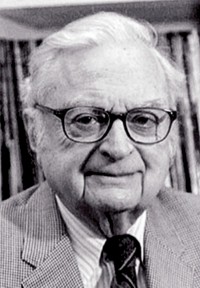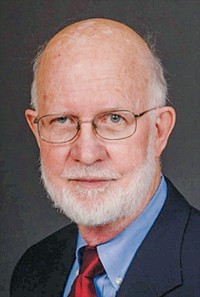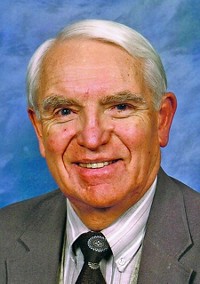Advertisement
Grab your lab coat. Let's get started
Welcome!
Welcome!
Create an account below to get 6 C&EN articles per month, receive newsletters and more - all free.
It seems this is your first time logging in online. Please enter the following information to continue.
As an ACS member you automatically get access to this site. All we need is few more details to create your reading experience.
Not you? Sign in with a different account.
Not you? Sign in with a different account.
ERROR 1
ERROR 1
ERROR 2
ERROR 2
ERROR 2
ERROR 2
ERROR 2
Password and Confirm password must match.
If you have an ACS member number, please enter it here so we can link this account to your membership. (optional)
ERROR 2
ACS values your privacy. By submitting your information, you are gaining access to C&EN and subscribing to our weekly newsletter. We use the information you provide to make your reading experience better, and we will never sell your data to third party members.
People
Nobelist Joshua Lederberg Dies At 82
Adviser to nine U.S. presidents blazed new trails in molecular biology
by Susan J. Ainsworth
February 6, 2008
Joshua Lederberg, 82, Rockefeller University's fifth president and a corecipient of the 1958 Nobel Prize for his pioneering work in bacterial genetics, died from pneumonia on Feb. 2 in New York City.
"Lederberg's impact on biological science equals that of any of the giants of the 20th century," according to James E. Darnell, professor emeritus and head of the Laboratory of Molecular Cell Biology at Rockefeller. Lederberg's discoveries of gene transfer in bacteria in the late 1940s and early '50s helped to lay the foundation for understanding gene function and "the universal use of Escherichia coli as the most important tool in biotechnology," he adds.
Lederberg, who graduated from high school at age 15, earned a bachelor's degree in zoology from Columbia College in 1944 and a Ph.D. in microbiology from Yale University in 1947. He held appointments at the University of Wisconsin, Madison and Stanford University School of Medicine before moving to Rockefeller in 1978. Upon his retirement in 1990, he returned to research at Rockefeller as University Professor emeritus, the Raymond & Beverly Sackler Foundation Scholar, and head of the Laboratory of Molecular Genetics & Informatics.
Throughout this career, Lederberg developed broad scientific interests, including the genetics, chemistry, evolution, and origin of life and the use of computer models for scientific reasoning. He was also intent on improving communication among scientists, the general public, and government policymakers.
An adviser to nine U.S. presidents, beginning with Dwight D. Eisenhower, Lederberg served in the U.S. Navy and worked on many government advisory committees and boards dealing with research on physical and mental health. He was actively involved in the U.S. Mariner and Viking missions to Mars in the 1960s and '70s. He was a consultant to the Arms Control & Disarmament Agency during the negotiation of the Biological Weapons Convention in 1970.
In addition to the Nobel Prize, which he won at age 33, Lederberg also received the National Medal of Science (1989) and the Presidential Medal of Freedom (2006). He served on the boards of several foundations including the Carnegie Corp., the Revson Foundation, and the Ellison Medical Foundation. He was a member of the American Chemical Society for 47 years.
Lederberg is survived by his second wife, Marguerite; his two children, Anne Lederberg and David Kirsch; and two grandchildren.






Join the conversation
Contact the reporter
Submit a Letter to the Editor for publication
Engage with us on Twitter